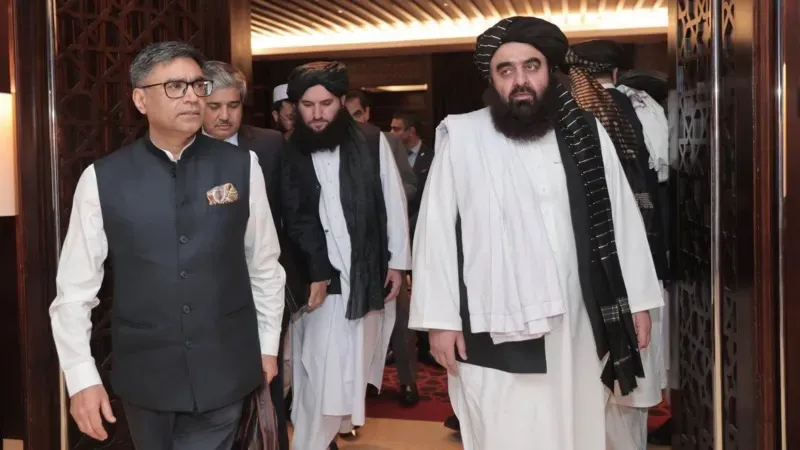India’s recent engagement with Afghanistan’s Taliban government marks a significant shift in regional geopolitics. Indian Foreign Secretary Vikram Misri met Taliban Acting Foreign Minister Amir Khan Muttaqi in Dubai, marking the first high-level dialogue between India and the Afghan regime in three years

A Diplomatic Challenge
When the Taliban seized power in Afghanistan in 2021, concerns arose about potential diplomatic setbacks for India. The fears stemmed from the Taliban’s anti-India stance during their earlier regime. India’s two-decade-long efforts to support Afghanistan’s democracy through initiatives like military training, scholarships, and infrastructure projects faced uncertainty. Additionally, the growing influence of regional rivals like Pakistan and China in Afghanistan heightened India’s security concerns.
Strategic Moves by India
Under the guidance of National Security Advisor Ajit Doval, India adopted a calculated approach to engage the Taliban. Humanitarian aid, including food, medicines, and COVID-19 vaccines, strengthened India’s ties with Afghanistan, even under Taliban rule. However, diplomatic exchanges remained minimal until this high-level meeting.
Key Outcomes of the Meeting
The meeting between Misri and Muttaqi signals warming diplomatic relations. The Taliban expressed interest in strengthening political and economic ties with India. Discussions included enhancing trade through Iran’s Chabahar port, emphasizing the Taliban’s view of India as a crucial regional economic power.
Taliban’s Assurance to India
During the meeting, the Taliban assured India of understanding its security concerns. The Afghan Foreign Minister promised that Afghanistan would not allow terrorist activities against India from its soil. This assurance is critical for India, aiming to counter Pakistan’s influence in Afghanistan and ensure the Taliban regime does not become a security threat.
Addressing Security Risks
India’s primary goal in the discussions was to mitigate potential threats from Afghanistan, including terrorism and drug trafficking, which could impact regional stability. The Taliban’s commitment to preventing such activities represents a significant diplomatic victory for India.
India’s engagement with the Taliban marks a pragmatic step in safeguarding its regional interests. By balancing humanitarian aid and strategic diplomacy, India aims to maintain stability in Afghanistan while addressing its own security and economic goals. This evolving relationship could redefine India’s role in the region and its approach to dealing with the Taliban regime.
